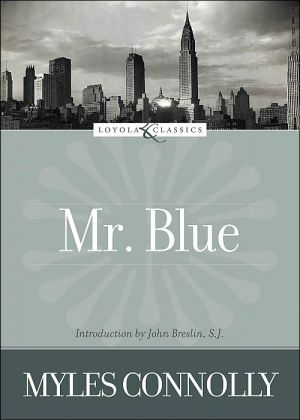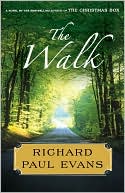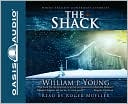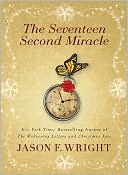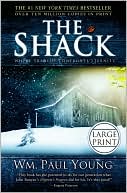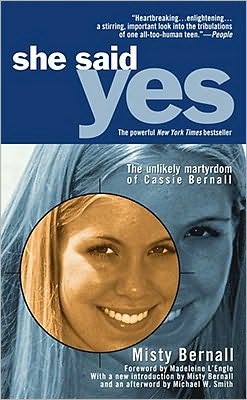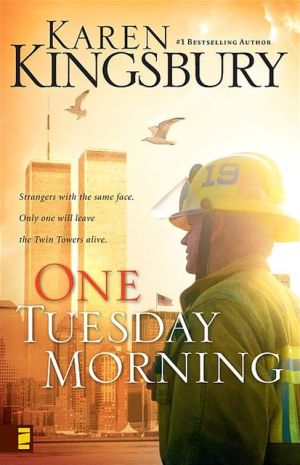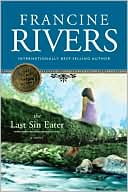Mr. Blue
J. Blue is a young man who decides to take Christianity seriously, not as a chore but as a challenge. He spends his inherited wealth almost as soon as he gets it. He lives in a packing box on a New York City rooftop. He embraces the poor as his best friends and wisest companions, distrusts the promises of technology (except for the movies), and is fascinated by anything involving the wide expanse of God’s universe. He is the ultimate free spirit, it seems; but what is the source—and...
Search in google:
The mysterious and magnetic J. Blue spends his inherited wealth as soon as he gets it and lives in a packing box on a New York City rooftop. This beloved novel about a contemporary St. Francis figure, first published in 1928, has intrigued countless readers for decades.Library JournalThe publisher launches its new "Classics" line of Catholic literature with these five titles, which run the gamut from serious historical novels to humor. Eight volumes will be added annually. Each will cost from $10 to $15 and include new intros and discussion questions for teachers or book groups. Copyright 2005 Reed Business Information.
Introduction John B. Breslin, S.J.\ When I was a kid at Regis High School in New York City during the late 1950s, a number of us eager types read a small book called Mr. Blue on the recommendation of a Jesuit scholastic or two. First published in 1928, Mr. Blue was the fictional creation of Myles Connolly, a 1918 Boston College graduate who went on to make a respectable mark in Hollywood writing screenplays.\ Connolly wrote scripts for, among others, Spencer Tracy, Jimmy Durante, and June Allyson and was nominated for an Oscar for his work on the 1944 wartime tearjerker Music for Millions. He produced or wrote forty films in all, but when he died in 1964, his single greatest legacy was generally acknowledged to be Mr. Blue. The book remained in print for most of sixty years. Nothing Connolly published subsequently—he wrote three more parable novels—came close to being as popular.\ Besides being brief, at 111 pages, Mr. Blue features what adolescents are most likely to be drawn to in a novel: a youthful protagonist who can thumb his nose at the establishment and get away with it. The book is about a young man—the eponymous Blue himself—who decides to take Christianity seriously as a layman, not as a chore but as a challenge. He chooses poverty. He lives variously in a festively painted packing crate on the roof of a skyscraper (where he flies kites and frees balloons); in mansions, thanks to a surprise inheritance that he soon dispenses; in the spartan garret of a Boston lodging house; and in the ward of a city hospital. He works “here and there,” shoveling snow or chopping wood, surviving on “backdoor begging” for meals. He speaks of Christ to anyone who will listen and to some who won’t.\ And he prays passionately, alone in his attic, before a massive cross. Blue intrigues, awes, and troubles the narrator, a somewhat older man caught up in the workaday life of a businessman, his feet squarely planted on the ground.\ As young Catholics, my high school friends and I were captivated by the idealistic rebel in Mr. Blue. He reminded us of Holden Caulfield and perhaps a bit of Dorothy Day, the only clear American saint of our generation. To our teachers, the book formed a continuum with the robust, paradoxical defense of Christianity laid out by the British author G. K. Chesterton, beginning with his Orthodoxy, published in 1909.\ Recently, I read Mr. Blue again, and I have come to realize that the character of Blue must also have appealed to us all, and to countless other readers, because he was a uniquely American personality. As Myles Connolly wrote him, J. Blue was the man whom the ambitious Jay Gatsby might have become had he steered by a higher truth than the sound of money in Daisy Buchanan’s voice.\ It is hard to overestimate G. K. Chesterton’s effect on several generations of young Catholic intellectuals-in-the-making. He took on the modern world with all its scientific works and philosophical pomps in the name of a reimagined Christendom, alive with story and redolent of paradox. “To have fallen into any of the fads from Gnosticism to Christian Science would indeed have been obvious and tame,” he wrote in Orthodoxy. “But to have avoided them all has been one whirling adventure; and in my vision the heavenly chariot flies thundering through the ages, the dull heresies sprawling and prostrate, the wild truth reeling but erect. . . . There are an infinity of angles at which one falls, only one at which one stands.”\ Chesterton’s method was simple but brilliantly realized. One by one he raised and demolished, often through ridicule or humor, the suppositions of pseudoscience and the secular nostrums of the educated classes. In response to the Freudian notion that Gothic spires were phallic symbols, Chesterton sagely agreed; otherwise, he deadpanned, they would surely have been built upside down.\ Chesterton saw himself as an apostle of affirmation in a world gone gray. At the same time, he threw open doors and windows in a church that seemed cautious to a fault and not very interested in new ideas. The Council of Trent had settled all the important questions four centuries before, but G. K. made orthodoxy exciting, even dangerous. Rather than viewing it as a straitjacket that stifled Christian theology, he preferred to see orthodoxy as a glorious balancing act and spoke of its “romance.” Myles Connolly made young Mr. Blue its ardent embodiment.\ In 1924, just four years before Mr. Blue appeared, Chesterton published his version of the life of St. Francis of Assisi, another brief book with great staying power. Did Myles Connolly, then twenty-seven years old, read it? I think it more than likely. Central to Chesterton’s understanding of Francis is the notion of seeing the world with a God’s-eye perspective. He imagines Francis going down so deeply into his cave of prayer that he comes up, as it were, on the other side:\ [Francis] sees things go forth from the divine as children going forth from a familiar and accepted home, instead of meeting them as they come out, as most of us do, upon the roads of the world. . . . He who has seen the whole world hanging on a hair of the mercy of God has seen the truth; we might almost say the cold truth. He who has seen the vision of his city upside down has seen it the right way up.\ Connolly set Mr. Blue in Boston, his hometown, but also in New York City, because that metropolis of strivers was exactly the right venue for Blue and his Roaring Twenties restaging of the St. Francis story. From atop the skyscrapers of Kenneth Clarke’s “heroic materialism,” Blue shouts his challenge to the modern world and its hubris, much as Francis did to the burgeoning market economy of thirteenth-century Assisi. And he does so with the same dramatic panache, for Blue is a poet as well as a mystic, a man, like Francis, with a sense of play and a talent for the grand gesture.\ Blue is always gesturing. He loves marching music, delights in color, the brighter the better, and thinks of money only as something to be spent, quickly, generously, and extravagantly, so that he can be without it. There is no middle ground for him, and this makes the narrator uncomfortable and wary—surely, life is about getting a job, settling down, having a family. But Blue is a misfit; he craves nothing.\ Of course, he is also a challenge, like Francis. For the narrator and, I suspect, for many readers of Connolly’s book, Blue represents the folly of the saints, to be admired if not exactly imitated. On the narrator’s first meeting with Blue, he confesses: “The more I listened to Blue the more I liked him. I liked his looks, to begin with. Anybody would. But besides that there was a certain spectacular quality, one might call it a certain spectacular sanity, beneath all his ideas that was novel and stimulating to me.”\ Spectacular sanity: the echo of Chesterton is unmistakable. Blue’s ideas are infectious and his theology entirely orthodox: The Incarnation is what makes the immense power and beauty of creation bearable to him. But for Jesus, Blue says, “I would be crushed beneath the weight of all these worlds.” Opposed to such sanity stands the more ordinary kind that the narrator can’t seem to get beyond: “the attitude,” he says, that “was the attitude of everyone everywhere. Blue, I’m afraid, was not marked out for success.”\ In 1925, F. Scott Fitzgerald’s The Great Gatsby appeared, a year after Chesterton’s St. Francis of Assisi and three years before Mr. Blue. The brief novel, now an academic classic, recounts the story of Jay Gatsby, a mysterious millionaire who takes his place, somewhat brashly, among the moneyed aristocracy of eastern Long Island in pursuit of Daisy Buchanan, the love of his impoverished youth.\ In the very first sentence of his novella, Myles Connolly identifies his hero as J. Blue. Could that be a coincidence? Hardly, for someone as well read as Connolly. Jay Gatsby stands for everything that Blue, three years later, rejects: the pursuit of great wealth, the willingness to do whatever it takes to win, the craving for status and acceptance. Gatsby is also, as Blue turns out to be, bigger than life, lavish in style, doomed to die young, a striking figure who fascinates and puzzles his own half-admiring chronicler, the reserved future journalist Nick Carraway.\ Can we imagine Gatsby and Blue inhabiting the same space in the Jazz Age before the Crash? Despite their commitments to radically different value systems, these two might have hit it off. Certainly, the view from the skyscraper would have stirred Gatsby; he might even have been able to pick out the light on Daisy’s dock in East Egg, with the help of binoculars. And certainly the lavish style Blue takes up briefly on inheriting a fortune—multiple houses, limousines, world trips—would have appealed to Jay Gatsby. But Blue’s true delight in his wealth is in giving it away as quickly as possible, hiring servants and then setting them up in their own homes, keeping his fortune in more than sixty checking accounts so he can write checks at any time.\ There is a startling echo of Jay Gatsby in Connolly’s book. Halfway through Gatsby, Nick Carraway reveals the millionaire’s origins as Jay Gatz, the son of a shiftless farmer, who re-created himself as the worldly Jay Gatsby, sprung “from his Platonic conception of himself. He was a son of God, a phrase which, if it means anything, means just that, and he must be about his Father’s business, the service of a vast, vulgar, and meretricious beauty.”\ Contrast that with Blue’s apostrophe to the stars from the roof of his Manhattan skyscraper: “God is more intimate here. . . . Don’t you find him so? This is height without desolation, isolation without emptiness. . . . I think my heart would break with all the immensity if I did not know that God himself once stood beneath it, a young man, as small as I. . . . I’m no microcosm. I, too, am a Son of God!”\ What propels Blue, like Gatsby, is a dream, but a selfless one, founded on the gospel example of Jesus and renewed in a quite literal way a millennium later by the man from Assisi. Blue has chosen a way of life that startles, challenges, and puzzles the people around him just as thoroughly as Jesus and Francis did in their times.\ What was Myles Connolly’s aim in writing Mr. Blue? Like Chesterton he wanted to confound the materialists and the skeptics, to proclaim a Christianity full of romance and gusto, to launch a challenge to the materialism Jay Gatsby so reflexively embraced. But after Connolly’s death, in 1964, his wife suggested that the story was also autobiographical. The young Connolly himself had loved kites, balloons, brass bands, the movies, and the Mass; Mr. Blue was his youthful challenge hurled at the world.\ In 1954, when Connolly was in his late fifties and the father of five children, he backed off a bit from the message of Mr. Blue in a foreword to the book’s silver anniversary edition: “I also feel that Mr. Blue, like Thoreau, failed to make the deeply important distinction that what is sauce for the bachelor may not be sauce for the married man and father at all.” Wiser? Sadder? Perhaps just older, which is why Jesus always insisted that the kingdom of God belonged by natural right to the young and the poor. The rest of us are allowed in on sufferance.\ Foreword\ I give here briefly and roughly a few episodes from the latter years of J. Blue. Mr. Blue was a unique figure in American life. It is a pity his story is so little known. I hope this contribution will lead those who knew him better, especially in his earlier days, to add their bit to a fitting and useful monument to his memory.\ Some years ago it was written of Mr. Blue:\ It is impossible to be with him an hour without breathing a new wholesome air, charged with beauty. It is impossible to be with him and not catch the spectacular glory of the present moment. At the power of his presence, before the eloquence of his eyes, poverty, neglect, and such trifles become as nothing. One feels bathed in a brilliant and even tangible light, for it is the light he sees, and which, he would have us believe, is about us on our gallant journey toward death. All the scales of pettiness fall off the soul. The spirit stands up, clean, shining, valiant, in an unconscious effort to match his. But then he is gone, with his tears and laughter and his dazzling glory. “Come, come,” his eyes say. “Behold the perilous road!” No one follows, I believe. And sometimes I wonder if he cares. “You will die, stifled with comfortability and normality, choked by small joys and small sorrows.” Such is his warning as he goes. What can a man do with a fellow like that?\ Foreword\ I give here briefly and roughly a few episodes from the latter years of J. Blue. Mr. Blue was a unique figure in American life. It is a pity his story is so little known. I hope this contribution will lead those who knew him better, especially in his earlier days, to add their bit to a fitting and useful monument to his memory.\ Some years ago it was written of Mr. Blue:\ It is impossible to be with him an hour without breathing a new wholesome air, charged with beauty. It is impossible to be with him and not catch the spectacular glory of the present moment. At the power of his presence, before the eloquence of his eyes, poverty, neglect, and such trifles become as nothing. One feels bathed in a brilliant and even tangible light, for it is the light he sees, and which, he would have us believe, is about us on our gallant journey toward death. All the scales of pettiness fall off the soul. The spirit stands up, clean, shining, valiant, in an unconscious effort to match his. But then he is gone, with his tears and laughter and his dazzling glory. “Come, come,” his eyes say. “Behold the perilous road!” No one follows, I believe. And sometimes I wonder if he cares. “You will die, stifled with comfortability and normality, choked by small joys and small sorrows.” Such is his warning as he goes. What can a man do with a fellow like that?\ This passage caught the spirit of his life very well. But no writing could catch the splendor of his adventures. Let not the critical think that I have tried to do so in this book.\ \ 1\ I had not heard from Blue for a year. He had written me from England where he had gone on a pilgrimage to Tyburn and the places of Thomas More. He had written something about generosity or humor. I had written back, urging him to get a good job with a reliable firm or he would end up in the poorhouse. “That will be glorious,” he replied. “I have long known the magnificent possibilities of living in a poorhouse. I will become the troubadour of the poorhouse.”\ I have not the slightest doubt he would have been, in spite of his youth (he was not yet thirty), immensely happy in a poorhouse. He had no money. When by accident he happened upon some he gave it away. He worked here and there for his meals and a place to sleep. He roamed the eastern United States and really did get abroad. The while he lived gloriously and, withal, religiously. He impressed one as a sort of gay, young, and gallant monk without an order. Or perhaps his order was life and the world his monastery. I suppose he deserved little credit for his courage, his disdain of money and comfort, his laughter, for all these qualities were as spontaneous in him as smugness and caution are in you or me. Yet his life was his vocation. He created, wherever he went, a sense of the adventurousness and beauty of existence. He made people friendlier and drove not a few to gener-\ osity. And he inspired some young men I know to really noble ambitions. One or two of these ambitions will, I feel sure,\ be fulfilled.\ I would have wagered with you that he would come back from England penniless and much wiser, that he would begin to see the folly of his haphazard life, that he would find himself some reputable office work and settle down to the normal, sensible existence of a good American citizen.\ I was, accordingly, astonished when I discovered him on Park Avenue lolling in the tonneau of an unnamable foreign automobile, with a chauffeur and footman stiff-backed before him. The automobile was a magnificent creation, very much like a Hispano-Suiza cabriolet, in ebony with the most delicate of white enamel and silver trimmings. The chauffeur and footman matched, even to the silver, the decorative scheme of the car. Blue lay deep in gorgeous pillows that were massed against the dark upholstery. He looked for all the world like a child in its first fine robes in its first fine baby carriage. His eyes were bright. I could see from his lips he was singing, singing perhaps some flamboyant song of his own making.\ The car had rolled by when Blue caught sight of me. I was too astounded even to salute him. The car came up to the curb. Blue slid out to the sidewalk, kicking three blue-and-orange cushions to the street. They lay there, huge swollen flowers in the dirt. He looked like a college boy on a holiday.\ “What do you think of it? It’s my own idea,” he broke out.\ “What?”\ “The automobile.”\ And this was his greeting after a year!\ He had come over the road from Boston and hired, so far as I could gather, the entire Ambassador. Wouldn’t I stop in for a bit to eat?\ I stopped in for the bit, which was served with candles in his own private rooms. He had a whole corps of waiters for the two of us and a majordomo to run the show.\ “Well,” he was laughing at me from a lounge in the drawing room afterward, “what’s your guess?”\ “Crazy.”\ His eyes twinkled, “No. Not that.”\ “I give up.”\ “Behold a plutocrat. An uncle who made a fortune in Romanian oil left me five million dollars.”\ Sure enough. Blue had become a millionaire, although I found out afterward that his fortune was two million and was left him by a cousin. He had made it in Australia, where a great deal of it was in real estate and sheep holdings. Blue promptly turned every possible investment into cash, which he kept on check in numerous banks. He had a little library case of these checkbooks and was very proud of them. “I have more checking accounts than anyone alive” was his happy boast.\ I believe he did. One day I counted sixty-three of these books on sixty-three different banks. It is remarkable what a man can do with money.\ Believe me, Blue did some amazing things with his money. He bought three or four palatial houses and filled them full of run-down servants. He used only one of the houses, but he always saw to it that the servants had a good time. He bought his favorite mansion from an old Boston aristocrat, bought it with all the furnishings. It was overstuffed when he took it, crammed full of lumpy, useless furniture and atrocious pictures. Blue remedied all this by doubling everything. That is, if a room had ten chairs, he ordered twenty put into it. If a room had six pictures and two tables, he saw to it that there were twelve pictures and four tables. He carried out the former owner’s designs to an amazing absurdity.\ The pleasure of being around where so much money was thrown away drew me to Blue’s company. At first I remonstrated with him. For I had the old-fashioned idea that money is something you treasure or use to acquire more money. It had never occurred to me that money was a handy medium of xchange. Blue, with his usual intuitive wisdom, knew all this. He exchanged money for everything possible. He exchanged it with the poor for their delight. He exchanged it with the helpless for lighter hearts. I thought at one time he was setting a bad example for other plutocrats. But the fear was unfounded. Nobody imitated him.\ I came upon him in his library, lying on the floor with his checkbooks and a heap of marked papers around him. He was evidently in great glee. “I have spent just nine hundred thousand dollars in eight months,” he announced, leaning back, his arms as stiff braces behind him. He was exultant. (I found out afterward that he had spent somewhat more than a million.) “And believe it or not,” he continued, “I have a million left.”\ He built a little factory for the manufacture of toy balloons. Colored toy balloons were one of his great passions. He designed various shapes and color schemes and had the balloons made accordingly. His favorites remained, however, the plain round balloons with the plain bright colors. He would go out into the hills with hundreds of these balloons and, lying on his back on some high crest, set them off. He made up little ditties to sing with the launching of the balloons. I never have seen and never expect to see a happier man than Blue on his back on the green grass watching with enrapt bright eyes a gorgeous orange balloon fade in the hazy skies. Sometimes when the wind was toward the gashouse, he would attach a small bill, perhaps of fifty or a hundred dollars, to the balloons. This was a ritual that gave him great delight. On other days he would paint, in contrasting colors, rhyming couplets on the balloons and send these too off into the skies.\ I suppose Blue had a purpose in all this business. He struck me sometimes as being suspiciously naïve. He had the boyishness of the true mystic. There were those who thought him crazy. Whether or not he had a purpose, he certainly succeeded in producing a very definite effect on me. I have always been extremely fond of money. There’s no question about a man’s best friend being his bankbook. And yet I must confess this madcap Blue put the stuff in a rather bad light and made one feel that making it was a ridiculous and nonsensical business. I suppose it is a bit foolish to spend the few years one has here accumulating any commodity. But, then, a man wants comfort and the things money can buy. I told Blue this once, and he laughed until I felt uneasy. “My dear boy,” he said to me, ten years his senior, “my dear boy, it makes no difference what you want or what you do.”\ “What do you mean?” I queried.\ “What I said.” And he laughed again.\ I was in New York for a few months. When I returned to Boston, I made a call. McCarthy, his favorite butler, came to the door in his shirtsleeves. I missed the usual ornate uniform. I knew something was up. McCarthy told me.\ Blue had given away the last of his money, sold all his effects, paid off all his help, and disappeared.\ I had a devil of a time finding him.\ A month or so later—autumn it was—I was tramping across Boston Common when, lo, before me, bareheaded, hands in his pockets, kicking up the leaves, is my friend Blue.\ I took a delicious pleasure in trailing him as he slouched along. He had on a suit of clothes that was either very cheap or very expensive, a hempen effect. I discovered later that the suit was made by Mr. Blue himself out of the substance of three burlap bags. It struck me as being an excellent idea. I followed him up Beacon Hill a block. He took a couple of turns and stopped before a house that might have been owned by one of the Adamses, one of those flat naïve affairs with a white door and a shiny brass knocker. It turned out to be a former residence of the Episcopal dean of St. Paul’s and was now run as a decent lodging house by a large German woman. Before Prohibition it enjoyed an honest reputation even among the ancients who, unimportant though they are, still hold on to this citadel of Boston’s glory. But since Prohibition—well, since Prohibition there are few of us whose reputations have not suffered.\ Blue turned the doorknob. I touched his arm. He looked casually around. He smiled, as if he had left me an hour before.\ “This,” he said, “is the only place in Boston for a man to live in.”\ I looked him over carefully. He was exceedingly thin and a bit haggard, though his eyes were as luminous as ever. I asked him about his lost grandeur, his money, his establishments. He looked at me with that childlike look of his, his eyes straight at you but out of focus by yards.\ “Come up,” he said.\ I went up. His quarters were in the attic. The furnishings of the room consisted of one bed with straw sticking out of the mattress, one chair, and an oil stove that, I imagine, Blue used for cooking, though I could see no signs of food. Perhaps Blue didn’t eat anymore. I was quite willing to believe anything.\ He motioned me most gracefully to the single seat. No courtier in a palace was ever more considerate of his king than Blue of me. After a while he began to laugh again. He stood before me, six lean feet of him in his burlap bags, his arms folded, twinkling at me, grinning at me. And then:\ “What’s your guess this time?”\ “Crazy again.”\ I said this but I didn’t mean it. He had many of the marks of insanity but somehow he gave you the impression that we were all crazy and he alone was sane. He seemed to have such a simple purpose in his life and succeeded so well in being very noble and very happy that one hesitated to judge him. After all, there are few things—except, perhaps, accumulating money and real estate and a little glory—that mean as much as being very noble and very happy. After a substantial bank account I can think of nothing quite as important as happiness. One has to give him some credit.\ He laughed at my guess. I mentioned again the fortune he had thrown away. He held up his palms prohibitively as if he didn’t want the subject mentioned.\ “Those millions were a trial set me by my Lady Poverty.”\ He bowed politely as if to stress the sincerity of his words. He changed the subject.\ “Don’t you love it here?”\ I could not summon much enthusiasm. “It would be better wouldn’t it if you could see the gardens or the statehouse or the river?”\ He was a little hurt. “Look!” he pointed toward a small skylight. “Didn’t you notice this?”\ I hadn’t particularly.\ He pulled his bed over until it was directly under the skylight. He threw himself hastily on it.\ “Watch,” he cried. “Watch.” He looked up through the skylight.\ I looked. It was nothing much, a bright square of blue sky with strings of cloud slipping across it.\ “Isn’t that glorious? At night I lie here and watch the stars fill the frame. One of these nights the moon will be there or me. I can think so quietly with my eyes on my own piece of sky.\ “I was saying to myself last night how I didn’t have any property, but I did own a piece of sky. It’s odd how the window makes you think you are all alone with its frame of stars.”\ I mentioned how Hans Christian Andersen used to sleep in an attic with the stars similarly above him.\ “Andersen would have made a beautiful Catholic,” he said.\ I could not see the point, so I held my peace. He began to talk, talk intensely, brilliantly, talk not as if he were talking to me but to some vast audience that hung on every word. He talked of life, the adventure of life, the loveliness of life. It is an old theme, but this lanky picturesque egotist touched it up with glory. The room grew dark in the dusk but his words lighted it. He filled the attic with his great courageous enthusiasm. What a small challenge death has for such a lad, I thought.\ It was dark. He stopped suddenly. There was quiet for a few minutes. Then a ripple of soft laughter.\ “Was I preaching?”\ I did not answer. I waited a minute and then said:\ “Yes, life is beautiful. What are you doing to pay for it?”\ I could hardly see him in the dark. Then after a while his voice came, and I had never heard it so grave, so, almost, tragic.\ “Please, please,” it begged; “what can I do?”\ I wanted to give him the old advice: go to his confessor. But any advice seemed so futile when given to Blue. Instead, I took my hat and slipped downstairs.\ I felt he would like to be alone.\ It was still dusk in the street. Some students in a theological school nearby were practicing hymns. Lights were spurting out, street lights, window lights. I thought of the boy of the balloons and the limousines. It occurred to me suddenly that perhaps I was wrong about his self-sufficiency and that he needed someone. I turned and went back.\ I knocked on the narrow door that led into the attic. There came no answer. I slipped in. The room was black except where at the end, above a tall screen I had not noticed before, there was a faint uncertain yellow glow. I was mystified. I walked the length of the room and looked.\ Behind the screen was a tall black cross mounted on a slight elevation. It was a brutal, bare cross. Before it, to one side, burned a candle. And on the floor, on his knees, his hands on the floor, his head almost on his hands, his hair barely out of reach of the smoky candle, knelt the erstwhile gay and gallant Blue. It was a striking picture, the black cross, the black figure, and the splotch of yellow candle.\ I drew back into the darkness of the room and waited. Blue made no sign or stir.\ \ I tiptoed downstairs again and went down to the side of the river. It was cool there and clear and immensely open.\
\ Library JournalThe publisher launches its new "Classics" line of Catholic literature with these five titles, which run the gamut from serious historical novels to humor. Eight volumes will be added annually. Each will cost from $10 to $15 and include new intros and discussion questions for teachers or book groups. Copyright 2005 Reed Business Information.\ \
